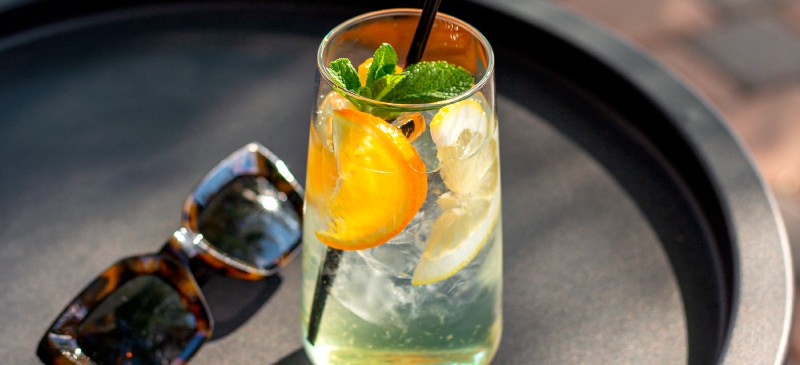This Dr. Axe content is medically reviewed or fact checked to ensure factually accurate information.
With strict editorial sourcing guidelines, we only link to academic research institutions, reputable media sites and, when research is available, medically peer-reviewed studies. Note that the numbers in parentheses (1, 2, etc.) are clickable links to these studies.
The information in our articles is NOT intended to replace a one-on-one relationship with a qualified health care professional and is not intended as medical advice.
This article is based on scientific evidence, written by experts and fact checked by our trained editorial staff. Note that the numbers in parentheses (1, 2, etc.) are clickable links to medically peer-reviewed studies.
Our team includes licensed nutritionists and dietitians, certified health education specialists, as well as certified strength and conditioning specialists, personal trainers and corrective exercise specialists. Our team aims to be not only thorough with its research, but also objective and unbiased.
The information in our articles is NOT intended to replace a one-on-one relationship with a qualified health care professional and is not intended as medical advice.
What Is Functional Soda (& Is It Good for You)?
January 14, 2025

It’s become common knowledge that soda is bad for you for a variety of reasons, including because of its high sugar and calorie content. If you’re someone who likes to switch things up from drinking plain water, what is the healthiest bottled drink to opt for in place of regular soda? “Functional soda” makes a good soda and juice alternative considering it actually provides some nutrients.
Much like sparkling water, functional soda is low in (or sometimes free of) added sugar but still hydrating.
And here’s more: If you deal with issues such as sugar cravings, low energy in the afternoon or even stomachaches, functional sodas might be able to help — thanks to added ingredients they contain, such as herbs and adaptogens.
What is functional soda?
What is considered a functional beverage exactly? “Functional soda” describes a sparkling, low-calorie and low-sugar beverage that is made with beneficial ingredients and supplements.
For example, some contain probiotics, amino acids and electrolytes, while others feature adaptogens, herbs and/or nootropics.
Most people choose to drink “functional pops” because they’re lower in sugar than many alternatives — plus they can potentially support digestive health, energy, exercise performance and immune function.
These drinks are considered to be one of the fastest-growing beverage categories. In fact, sales of functional beverages grew a whopping 54% from March 2020 to March 2024 in the U.S., according to Nielsen, reaching $9.2 billion, and some experts expect the functional beverage market to grow 7% each year through 2027 across the globe.
This isn’t surprising considering that more and more people are looking to ditch sugary drinks, especially soda, in favor of health-promoting drinks like coffee, tea and flavored waters.
Types/varieties
Today there’s an increasing variety of functional beverages available in large supermarkets and health food stores, and we can expect to see even more functional soda options hit the market over the next few years.
Some of the more popular brands at this time include:
- Olipop
- Poppi
- Booch Pop
- Culture Pop
- Health-Ade Pop
- Koios
- Fit Soda
- AlluSoda
- Sidekick Soda
- Zevia
- Soulboost (one of the latest offerings from PepsiCo)
Depending on the specific type, within functional sodas you can find ingredients including:
- Herbs, such as ginger, basil or turmeric
- Caffeine from coffee and green tea extract
- L-theanine and L-tyrosine (amino acids that can help promote calmness)
- Amino acids (the “building blocks of protein”)
- Probiotics (beneficial microbes, including bacteria, that support gut health)
- Prebiotics, including plant fibers from pectin fiber, Jerusalem artichoke, chicory root, kudzu root, nopal cactus (which “feed” probiotics)
- Apple cider vinegar
- Fruit juice powders, such as cranberry, pineapple, pomegranate, elderberry, acai, lemon and lime juice
- Adaptogens like ashwagandha or ginseng (herbs that support energy and a healthy response to stress)
- Electrolytes, such as magnesium, potassium and sodium (the same minerals found in sports drinks like Gatorade)
- B vitamins
- Other micronutrients, like vitamin C
- Medium-chain triglycerides (or MCTs, a type of fat that is popular among low-carb dieters)
- Functional mushrooms, such as lion’s mane mushroom and cordyceps
Potential benefits
Why do people drink functional beverages? Are functional sodas like Poppi soda actually good for you?
Poppi, Olipop and other popular functional pops do make great alternatives to most other sugary beverages, especially those made with high fructose corn syrup and other highly processed ingredients.
Not only can they help reduce your calorie and sugar intake, but they might also lead to benefits related to mental and physical performance, as well as gut, immune and digestive health.
Some of the potential benefits associated with these drinks include:
1. Lifting your energy and focus
This is due to compounds like caffeine, B vitamins and adaptogens, such as panax ginseng. These ingredients may help you concentrate better and avoid the “afternoon slump” that many people experience.
Some people find that drinking functional beverages that include nootropics can also enhance cognitive functions, such as memory, clarity, decision making and creativity.
2. Helping you relax and unwind
L-theanine, as well as certain adaptogens like ashwagandha, can help you feel calmer and potentially handle everyday stressors a bit better. Enhanced relaxation can also translate to better sleep and improved daytime energy.
3. Supporting gut and digestive health
Probiotics and prebiotics found within some healthy sodas can help improve diversity and balance of microbes living in the gut microbiome, which provides benefits for elimination, nutrient absorption, immune function and more.
Apple cider vinegar might also potentially help balance stomach acid production, which may decrease acid reflux symptoms, while ginger can help reduce stomach cramping and nausea.
4. Helping with exercise performance and recovery
The inclusion of compounds such as branched-chain amino acids, electrolytes and carbs from fruit juice can help fuel muscles for exercise, plus assist in muscle growth and exercise recovery.
Of course, these drinks are also hydrating, which is important for muscle and nerve function.
Functional beverages vs. regular soda
One of the main differences between regular soda and functional soda is the sugar content. Many functional beverages contain far less sugar and are often sweetened with zero-calorie sugar substitutes — such as stevia, erythritol or monk fruit.
Some types are also lightly sweetened with fruit juices or natural syrups.
Because they don’t have much added sugar, functional sodas are usually much lower in calories than regular soda. Most have between zero and 60 calories per can, while a can of regular soda contains 150 calories and 39 grams of sugar.
Soulboost, for example, has two to four grams of sugar and 10 to 20 calories per can.
Regular soda is also missing any real nutrients, such as vitamins, minerals or antioxidants. The only things it contributes to your diet are carbohydrates in the form of processed, added sugar.
Risks and side effects
Some functional sodas contain stimulating ingredients, including caffeine, which some people are sensitive to. To keep yourself from feeling jittery, look for types that have about the same amount of caffeine as a cup of coffee or less, which is typically no more than 100 milligrams of caffeine per serving/cup.
When purchasing functional sodas, be sure to read nutrition labels and ingredient lists. Look for those made with recognizable ingredients and little added sugar.
The primary ingredient should be water, and perhaps some juice, stevia and other straightforward compounds.
Conclusion
- Functional sodas are low-calorie, low-sugar drinks that have been experiencing significant growth in the past few years. Popular brands include Olipop, Poppi, Fit Soda and others.
- These drinks are made with compounds including probiotics, fiber, probiotics, amino acids, herbs, nootropics and electrolytes. Most are sweetened with stevia and a little bit of juice.
- Due to their beneficial ingredients, they might offer support for digestive health, cognitive performance, exercise recovery and digestion.
- Stick to having about one to two cans per day, and don’t necessarily rely on these drinks to obtain essential nutrients.




